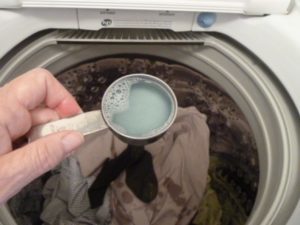Chances are, you’ve got your household cleaning routine down to a science, and rarely give it much thought. You spray, wipe, vacuum, and repeat as needed. But what if we told you that, in certain instances, you were causing more harm than good? It’s entirely possible as you’re about to see:

Laundry Detergent – If you carefully measure out laundry detergent for each load you wash, give yourself a pat on the back. The rest of us who eyeball it are probably using too much, which wastes money and can cause a build-up on certain fabrics.
Vinegar – Natural and cheap, vinegar is great for wiping up every-day messes and making your windows and mirrors shine. But, it should never be used on granite as the acidity will dull and weaken the sealant over time. Same goes for hardwood floors – vinegar can strip the finish on hardwood and ruin its shine.
Paper Towels – If you’re trying to get your windows or mirrors squeaky clean, skip the paper towel and use newspaper instead; that’s how to prevent those linty streaks.
Club Soda – Club soda is great at tackling most spills on fabric, but it will not work on oil-based stains like sauces and salad dressing. The best way to remove those is to apply a good amount of cornstarch to the area, let it sit for a couple of hours, then blot with a clean absorbent cloth.
Reusable Plastic Containers – They’re great for storing leftovers, but may not be great for reheating them. Before you pop that container of pasta in the microwave, check the bottom to make sure it’s microwave safe. Otherwise, the high temperature could cause plastics to leak into your food.
Sponges – You use it to wash that sink-full of dishes, then run it over your stove top and counter. But if you’re not disinfecting your sponge in the dishwasher or microwave, and replacing it frequently, you could be spreading germs and bacteria all over your surfaces.
Broom – Use a broom only to clean up truly dry messes, otherwise debris with even the smallest amount of moisture can get trapped in the bristles and breed more bacteria. And don’t forget to clean your broom regularly. Give it a quick rinse with vinegar and water, and allow it to dry completely before using.
Here’s another friendly cleaning tip: while you’re making the rounds, keep a watchful eye out for any signs of a water leak, such as black mold, a stain on a wall or ceiling, a spongy bathroom floor, and so on. Often times it’s the leaks you can’t see that cause the most damage, so if you do see evidence of a previous or active water leak, contact Arnold & Sons Plumbing so we can find out where the leak is coming from and stop it from causing any more damage.








